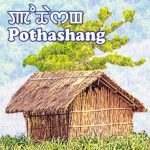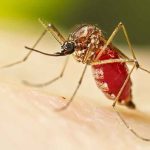Dr. N. Munal Meitei
Environmentalist, email-nmunall@yahoo.in

We look at nature and see all the beauty and the prosperity around us. While many people recognize that clean air and water are signs of a healthy ecosystem, most of us do not realize that a critical part of environment is right beneath our feet. The ground plays an important role in maintaining a clean environment by serving as a natural filtration and purification system. World Soil Day is celebrated on 5th December since 2014 to inform people about the significance of soil health and it’s importance in our life on Earth. The theme for this year is “Caring for Soils: Measure, Monitor, Manage” emphasis the role of soil data and sustainable practices in ensuring food security, combating climate change and promoting resilient ecosystems.
Our planet’s survival depends on the precious link between soil and water. The symbiotic relationship between soil and water provide the foundation for ecosystem services, food security, human well-being and key for sustaining life on the planet. Soil produces a staggering 95% of humanity’s food supply, by growing both the crops we eat and for the livestock. One cubic meter of healthy soil can retain over 250 liters of water. Improper soil and water management practices affect soil fertility, soil erosion, soil biodiversity and water quality and quantity.
Earth’s outer layer – from the top vegetation canopy to the strata of soils and layers of underground material – helps soak up and purify water by extracting excess nutrients, heavy metals and other impurities. Without groundwater, there is no clean water. Thus, beneath the surface lies the foundation of our sustainability.
Despite being everywhere around us – in fields and gardens and beneath our feet – soil is often taken for granted. Yet in several fascinating ways, this miraculous substance holds the key to life on Earth. It helps produce our food, filters and purifies air & water, reduces flooding, regulates the atmosphere and plays a crucial role in driving the carbon and nitrogen cycles. It is also one of the most bio-diverse habitats on the Earth.
Soils are fundamental to life but human pressures on soil are reaching on critical limits. Careful soil management is the lever for climate regulation and a pathway for safeguarding ecosystem services. Soil is one of the integral parts of our lives and biodiversity. Soil provide us with necessary nutrients. Soil are the bed for growth of food items and home to diverse species.
Soil is more than just dirt – the state of our soils impacts everything on human health and climate change. Food systems today are being viewed through a narrow and distorting lens called per-hectare-productivity which impacted the soil. According to FAO, world’s topsoil could be completely eroded within the next 60 years if current soil degradation rates continue. U.N. called for stronger management of the planet’s soils as critical that could “make or break” to our long hard effort on net-zero.
Soil is one of the most ubiquitous – and underappreciated – substances on Earth. Soil plays a vital role in climate control. Most people are already aware of the importance of forests and trees in reducing CO2 in the atmosphere. But soil stores carbon, three times the amount in the atmosphere and twice contained in all plants and trees.
Soil is Earth’s skin: thin and delicate but played an irreplaceable role in preserving the health and Eco-system and the global biosphere as a whole. Soil is one of the most underrated and little understood wonders on our fragile planet.
Plants not only extract CO2 from the atmosphere but store in the soil in the form of plant residues and humus. However, when soil becomes damaged or degraded, it again release back into the atmosphere, thereby accelerating – rather than decelerating – the climate change.
Almost 25% of animal species on Earth live underground, while 40% of organisms in terrestrial ecosystems are associated with soil at some points during their lifecycles. Healthy soils provide habitats that support thousands of different species of fungi, bacteria and invertebrates, which then work in combination to drive the Earth’s carbon, nitrogen and water cycles, thereby creating the nutrients and food we need to survive.
Many life-saving drugs and vaccines are discovered from soil which include penicillin to bleomycin and many others. Healthy soils enable plants to produce helpful chemicals such as antioxidants which protect them from pests and other external threats. When humans eat these plants, the antioxidants boost our immune systems and hormone regulation. Thus healthy soil boosts to our healthy body.
When we come to know that soil is vital for our life, most of our soils might have been irreparably damaged and vulnerable. There are multiple human-made threats to soil health. These include deforestation, urbanization, agricultural intensification, soil compaction, acidification, salinization, pollution, landslides, wildfires and soil erosion.
Healthy soils cannot be quickly or easily replenish. It takes 100 years to build just half a centimeter of healthy soil, which means we are currently losing soil 100 times faster than it is able to rebuild.
Since the Green Revolution, an estimated 135 billion tonnes of soil has been lost. For that we need sustainable soil management practices which include minimum tillage, regular crop rotation, sustainable grazing, organic addition and cover cropping to improve soil health and mixed farming methods such as agroforestry which involves planting trees alongside crops. These practices also preserve soil biodiversity, improve fertility and contribute to carbon sequestration, playing a crucial role in the fight against climate change.
Soil is connected to almost everything in human life. Raising awareness on importance and how soil is currently at risk should be the agenda of this day. Up-til now, many of us were under estimating the richness and vitality of this unseen subterranean world but from this moment onwards, let’s save soil because we have everything if we have the healthy soil.













